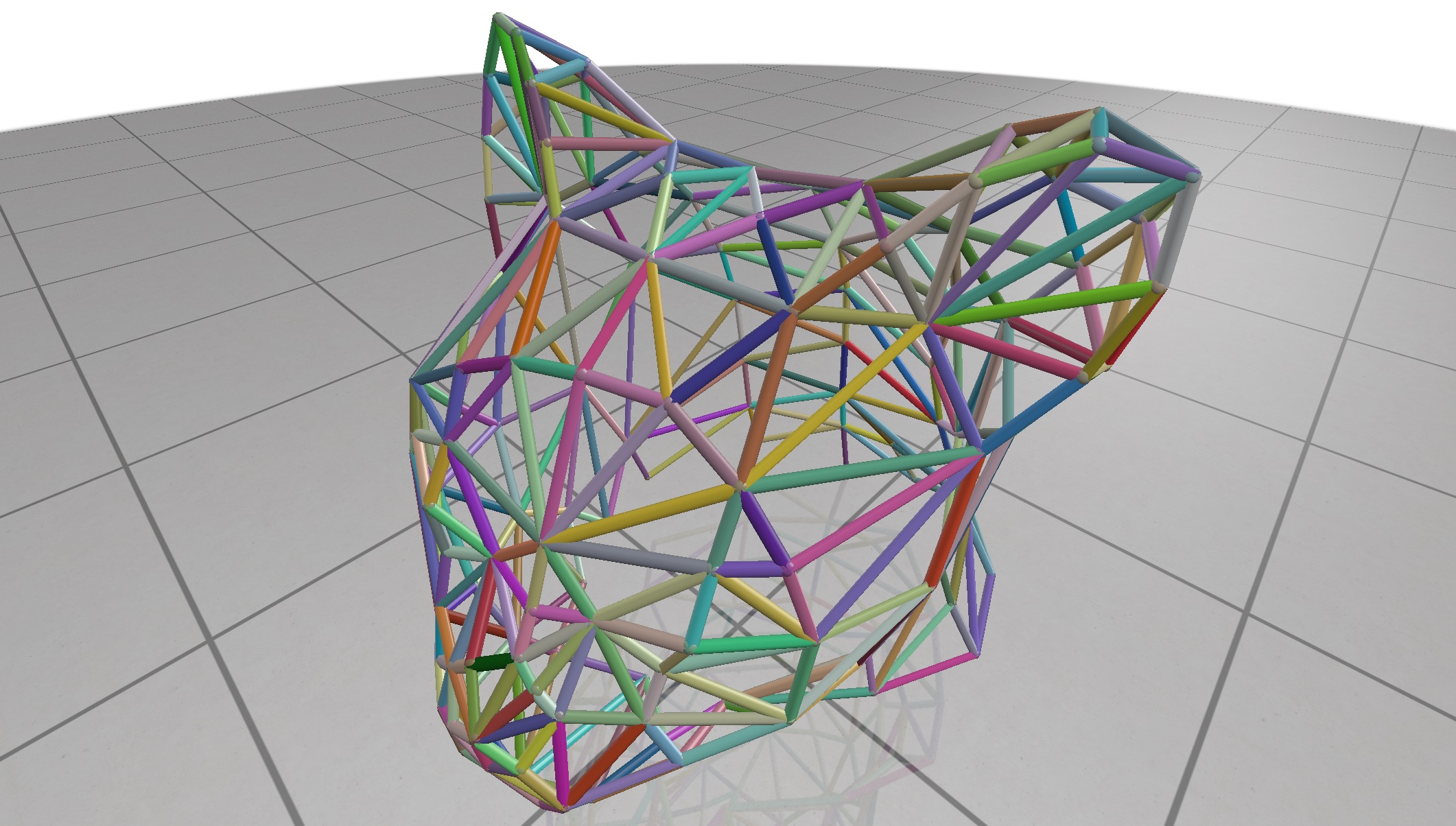Color Quantities
Visualize color rgb-valued data at the nodes or edges of a curve network.

Example:
#include "polyscope/curve_network.h"
std::vector<std::array<double, 3>> randColor(edges.size());
for (size_t i = 0; i < edges.size(); i++) {
randColor[i] = {{polyscope::randomUnit(), polyscope::randomUnit(), polyscope::randomUnit()}};
}
// visualize
polyscope::getCurveNetwork(curveNetworkName)->addEdgeColorQuantity("random color", randColor);
CurveNetwork::addNodeColorQuantity(std::string name, const T& values)
Add a color quantity to the nodes of the curve network
valuesis the array of colors at nodes. The type should be adaptable to a 3-vector array offloats. The length should be the number of nodes in the curve network.
RGB values are interpreted in the range [0,1].
CurveNetwork::addEdgeColorQuantity(std::string name, const T& values)
Add a color quantity to the edges of the curve network
valuesis the array of colors at edges. The type should be adaptable to a 3-vector array offloats. The length should be the number of edges in the curve network.
RGB values are interpreted in the range [0,1].
Color Quantity Options¶
These options and behaviors are available for all types of color quantities on any structure.
| Parameter | Meaning | Getter | Setter | Persistent? |
|---|---|---|---|---|
| enabled | is the quantity enabled? | bool isEnabled() |
setEnabled(bool newVal) |
yes |
(all setters return this to support chaining. setEnabled() returns generic quantity, so chain it last)